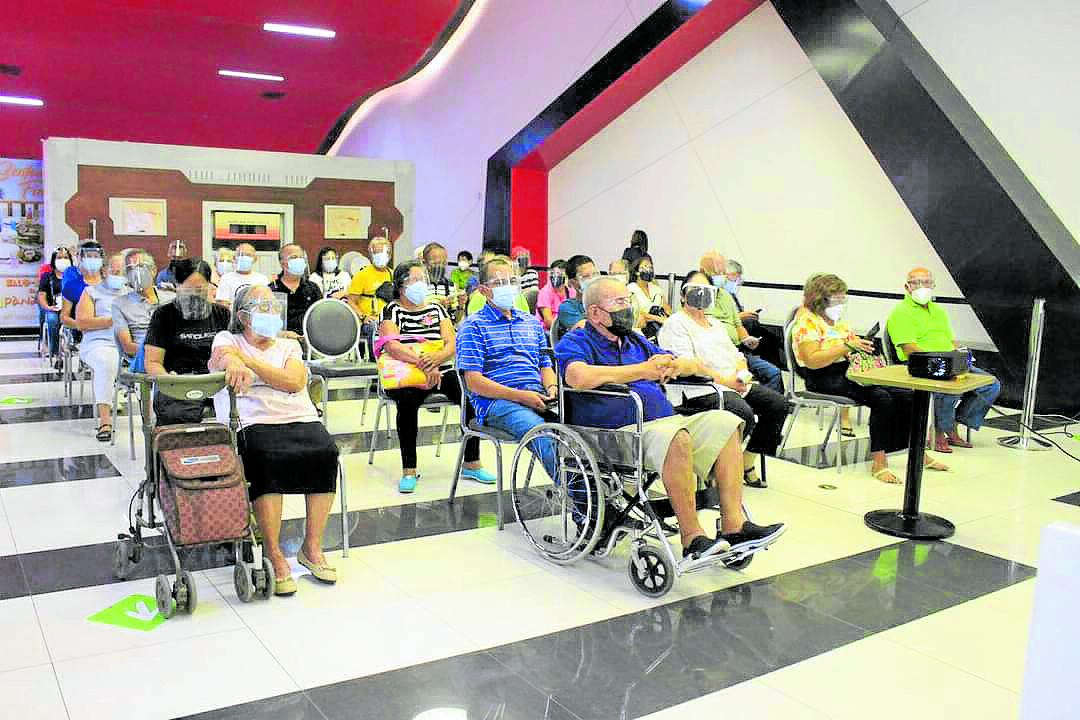Cagayan de Oro archbishop to faithful: Vaccine ‘morally acceptable’

(FILE) Senior citizens in Cagayan de Oro City wait for their turn to be vaccinated in an inoculation center inside the SM Downtown Premier mall. —PHOTO FROM THE CDO CITY INFORMATION OFFICE
CAGAYAN DE ORO CITY – The Archdiocese of Cagayan de Oro has reiterated its stand upholding the use of vaccines to convince the faithful who remain undecided on being vaccinated the coronavirus disease (COVID-19).
Archbishop Jose Cabantan, head of the Archdiocese of Cagayan de Oro, assured the faithful that vaccines are “morally acceptable” and that the church is upholding their use.
“In this directive, I would like to clarify that the Archdiocese of Cagayan de Oro affirms the pronouncements of Pope Francis, the Congregation for the Doctrine and Faith (CDF) and also those of the Catholic Bishops’ Conference of the Philippines (CBCP), as well as the Bishops’ Conferences worldwide,” wrote Cabantan in a letter he sent to the clergy, religious workers and the faithful on Aug. 23.
He said differing opinions within the local Roman Catholic communities prompted him to issue the letter to ease doubts among church members about vaccination.
Cabantan cited a statement from the CDF in December 2020 declaring that vaccination is “morally acceptable” in the fight against the pandemic.
“All vaccinations recognized as clinically safe and effective can be used in good conscience,” he said.
He added that in the absence of other means to stop the pandemic, concern for the common good may recommend vaccination especially (among) the weakest and most exposed.
“Vaccination is not just to protect one’s own health but also to promote the good within society,” he said.
He also quoted a statement from the United States Conference of Catholic Bishops, which said that the “act of vaccination can be ‘an act of charity… an act of love of our neighbor and part of our moral responsibility for the common good.’”
Cabantan, however, said people with comorbidities should follow the advice of their doctors on whether or not to have themselves vaccinated.
“To these, and those who for reasons of conscience do not wish to be vaccinated, they must all still do their utmost to avoid becoming vehicles for the transmission of the infectious agent,” the Archbishop said.
Cabantan said that earlier this year Pope Francis announced that “people have the moral obligation to receive one of those vaccines. It is a moral choice, a moral duty because it is about your life and the lives of others,” the Pope said.
“Just recently, through a video message, Pope Francis urged people to get inoculated. First, he thanked God for the vaccines – our hope for ending the pandemic only if it is available to all,” he said.
The Pope said that vaccination is a simple but profound way of promoting the common good and of caring for each other, especially for the most vulnerable, Cabantan said. He also added that it is an act of love for oneself, for one’s family and friends, and for all people.